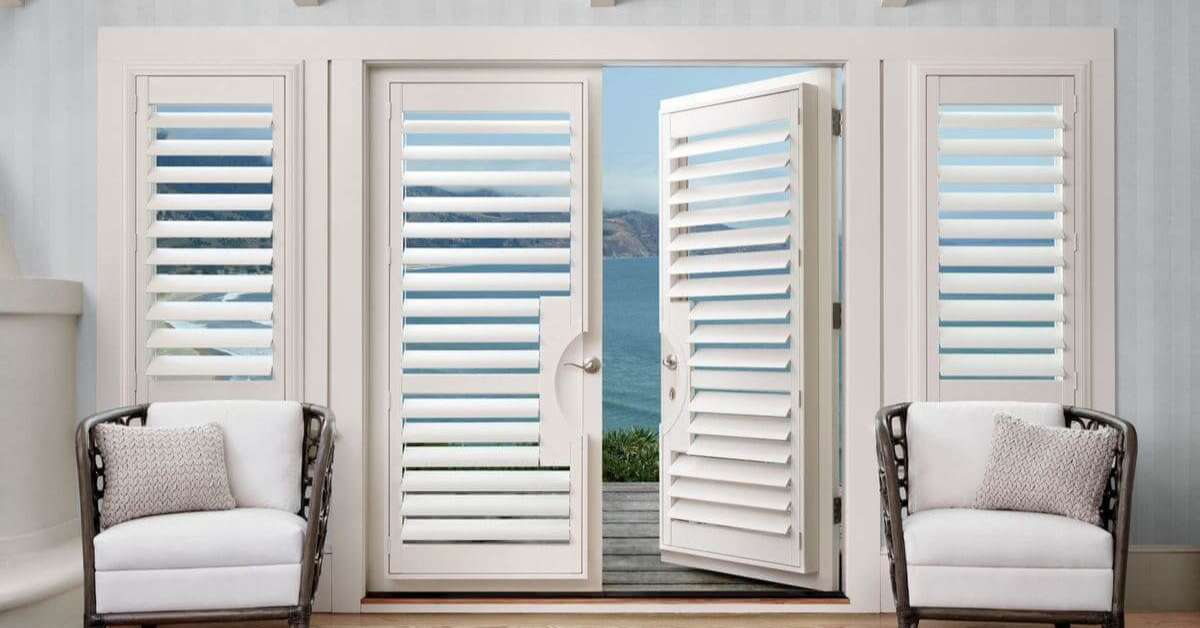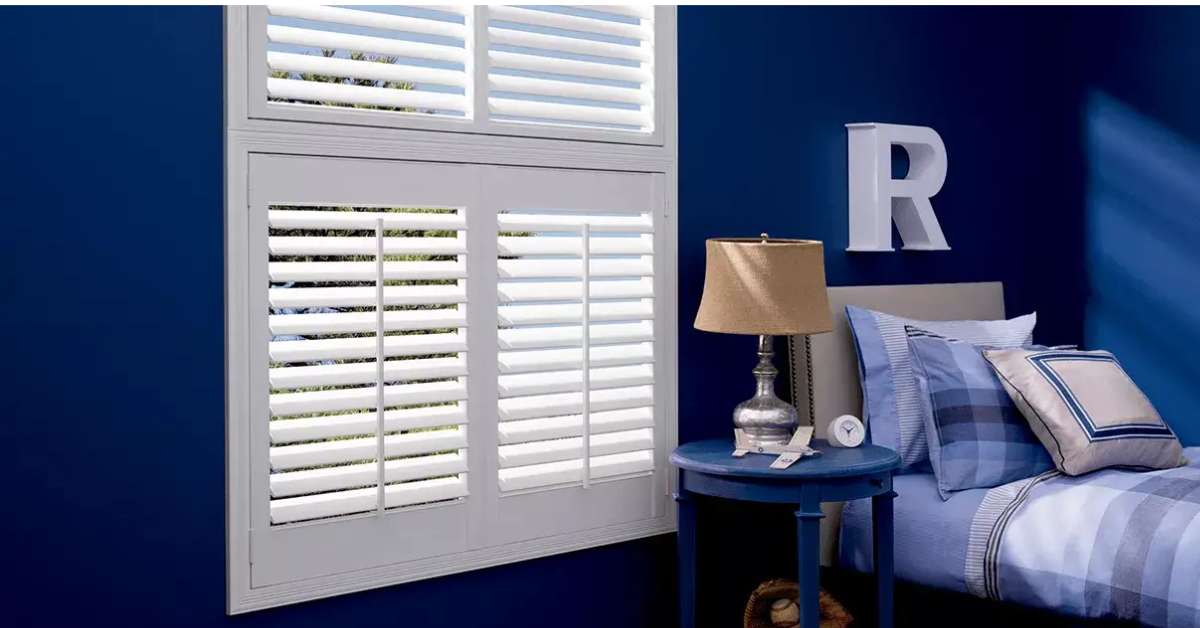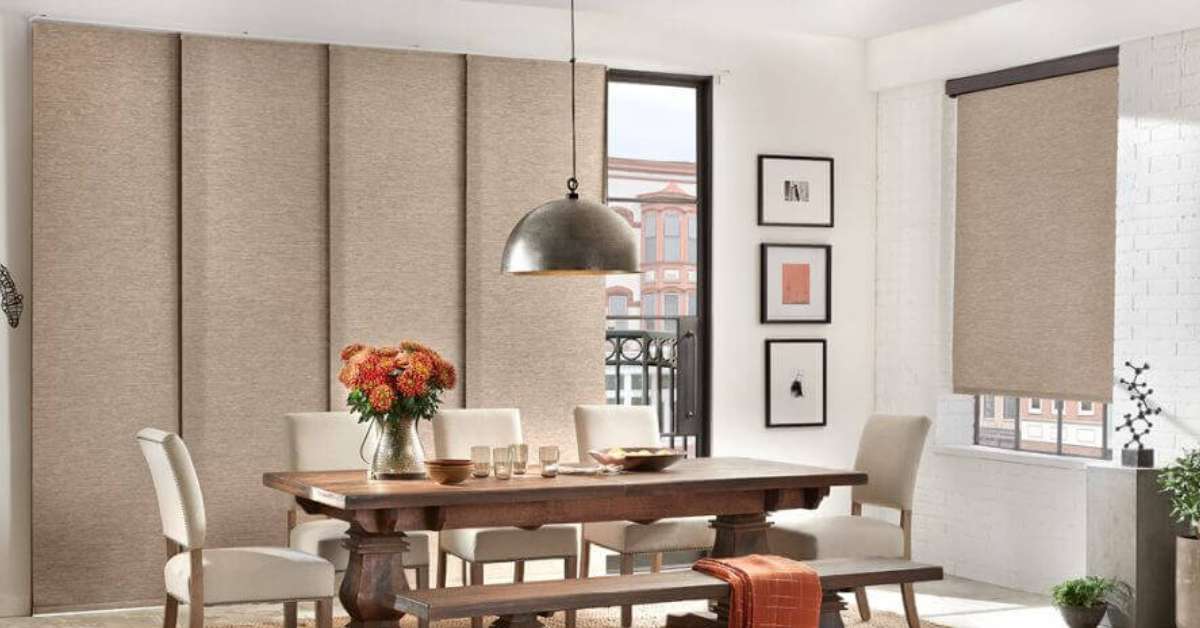Plantation shutters are a classic, timeless window treatment that can enhance the beauty and functionality of any room. As a considerable investment and focal point in your home, it’s important to select plantation shutters that are high-quality, durable, and customized to your space. Follow this guide for tips on spotting the best plantation shutters for your home.
Assess Craftsmanship and Materials
High-quality plantation shutters should be solidly constructed with sturdy materials to ensure they stand the test of time. Examine the shutters closely and look for these hallmarks of craftsmanship:

- Real wood slats rather than faux wood materials. Basswood, poplar, and red oak are common quality woods.
- Slats with uniform width, thickness, and smooth edges. Avoid warped or irregular slats.
- Durable hardware and hinges that allow smooth operation. Open and close the shutters to test functionality.
- Tightly joined frames with no visible gaps or cracks. Run your hand along the joints.
- Multi-layer paints and stains for enhanced protection and longevity.
The best shutters employ mortise and tenon joinery for sturdy frame construction. Investing in custom-sized real wood shutters ensures quality materials built to last decades.
Evaluate Aesthetics and Design
While performance is important, you also want plantation shutters that enhance your home’s décor and architectural style. Consider these aesthetic factors:
- The slat size, shape, and tilt options best complement your windows. Narrow slats offer a traditional look, while wider slats create an airy feel.
- Colors, stains, and paint options to coordinate with your interior design scheme. Neutral tones suit various styles.
- Custom options like arched panels for unique windows and built-in valances for a seamless look.
- Streamlined frames that don’t detract from the window. 2.5-inch frames suit most homes.
- Decorative accents like louver cut-outs and contrasting tilt rod colors for added style.
- Visiting showrooms to view design options in person helps ensure your shutters align with your vision.
Measure Precisely for a Custom Fit
Plantation shutters should be measured and manufactured specifically for your windows. Avoid generic stock sizes, which likely will provide an approximate fit. Consider details like:
- Taking exact measurements yourself or hiring a professional. Even small measurement variations can prevent proper installation.
- Measuring each window individually if they vary in size. Don’t assume windows are uniform.
- Accounting for the window’s exact position in the frame, including any unevenness.
- Considering potential obstructions like window cranks and trim molding that may interfere with shutters.
- Choosing between inside-mount (fits within window opening) or outside-mount (overlaps the window frame) to determine overall dimensions.
- With detailed measurements for each unique window, you can select custom-fit plantation shutters tailored to your space.
Compare Durability and Maintenance Needs
While real wood is considered the gold standard, engineered wood composite options like faux wood and polymer may suit your durability needs and budget. Compare material properties:
- Real wood offers unparalleled beauty, but requires occasional refinishing to maintain its look. Consider moisture-resistant woods like poplar and basswood if in humid environments.
- Polymer shutters are moisture-proof and don’t warp but can appear artificial upon close inspection. They require almost no maintenance.
- Faux wood made from engineered wood products compromises aesthetics and has low maintenance. They hold paint better than real wood.
No matter the material, look for shutters with durable finishes and overlays for enhanced longevity. Avoid shutters that require frequent repainting or restoration.
Review Your Budget and the Investment
Quality custom plantation shutters are a significant investment. However, they also provide excellent long-term value. When reviewing your budget, consider:
- Real wood shutters have a higher initial cost than composites and other window treatments.
- Long-term savings from their durability and lifespan of 20+ years when properly maintained.
- Added property value for future resale. Wood shutters, in particular, boost home value.
- Energy efficiency from insulation and light control that can reduce heating/cooling bills.
- Not having to replace cheaper window treatments that degrade quickly in comparison frequently.
With proper care, plantation shutters are a wise investment that pays dividends for years.
Choose a Reputable Provider
Working with an experienced local provider ensures you receive informed recommendations, precise measurements, quality products, and professional installation. Look for:
- An established company with a longstanding positive reputation.
- Extensive experience designing, manufacturing, and fitting plantation shutters.
- A well-trained team to assist you through the process.
- Strong customer reviews for quality and service.
- Detailed guarantees in case any issues arise after installation.
The right provider helps transform your window spaces with plantation shutters you’ll enjoy for decades.
Frequently Asked Questions about Plantation Shutters
1. What are the pros and cons of plantation shutters?
Pros: aesthetic appeal, customizable, natural light control, insulation, durability, easy to clean, increased home value. Cons: expensive initial cost, can warp if exposed to moisture, makes some rooms darker.
2. Do plantation shutters require much maintenance?
Made from durable materials, plantation shutters require little maintenance. Occasional dusting is all that is needed for most. Real wood may require refinishing every 5-10 years to maintain its look. Shutters made from composites require virtually no maintenance.
1. What are the pros and cons of plantation shutters?
Pros: aesthetic appeal, customizable, natural light control, insulation, durability, easy to clean, increased home value. Cons: expensive initial cost, can warp if exposed to moisture, makes some rooms darker.
2. How much do plantation shutters cost?
On average, expect to pay $25 – $50 per square foot for quality mid-range plantation shutters installed. More premium woods and custom designs range from $50 – $100+ per square foot.
3. Do plantation shutters require much maintenance?
Made from durable materials, plantation shutters require little maintenance. Occasional dusting is all that is needed for most. Real wood may require refinishing every 5-10 years to maintain its look. Shutters made from composites require virtually no maintenance.
Choose the Best Plantation Shutters with The Blind Guy
Selecting the ideal plantation shutters is an investment in your home for years. By taking the time to carefully evaluate quality craftsmanship, custom measurements, aesthetics, durability, value, and provider reputation, you can ensure you purchase shutters that meet your needs. With proper installation and care, they will enhance your space beautifully and function reliably for decades without the need for replacement.
For homeowners seeking to install plantation shutters, now is the perfect time to explore your options. Schedule a design consultation with our team today. We are experts in helping clients select premium shutters tailored to their homes and budgets. Our experienced consultants will provide precise measurements, help you view product samples first-hand, and make recommendations to transform your spaces seamlessly.







